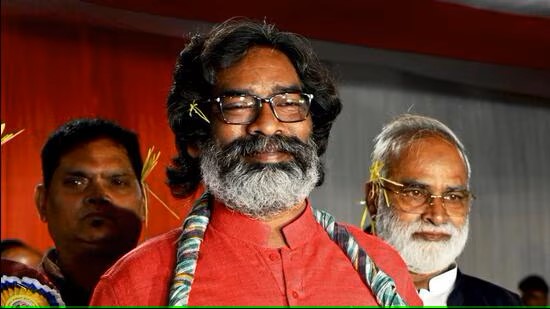Jharkhand Chief Minister Hemant Soren has taken up the cause of Assam’s tea tribes by writing to Assam Chief Minister Himanta Biswa Sarma, urging him to initiate measures to grant Scheduled Tribe (ST) status to the tea garden communities in the state. In his letter, Soren emphasized the historical and socio-economic importance of the tea tribes, many of whom trace their roots to Jharkhand and other parts of central India. The appeal has brought to the forefront long-standing demands for the recognition and welfare of tea workers in Assam, a group that has been historically marginalized despite playing a pivotal role in the state’s economy.
The Tea Tribes and Their Struggles
The tea tribes of Assam, often referred to as “tea garden workers” or “Adivasis,” are descendants of laborers brought to Assam by the British during the 19th century to work in the burgeoning tea plantations. These workers were primarily recruited from the tribal communities of Jharkhand, Odisha, Chhattisgarh, and West Bengal. Today, their population in Assam is estimated to be around 6-7 million, making them a significant socio-economic group.
Despite their numbers and their contribution to Assam’s tea industry, which produces more than half of India’s total tea output, the tea tribes have remained socio-economically disadvantaged. They have long struggled with poverty, lack of access to education, healthcare, and land rights, as well as poor working conditions. The demand for ST status has been central to their political and social movement, as it would entitle them to several benefits, including reservations in government jobs and educational institutions, along with protections under the Indian Constitution.
Hemant Soren’s Intervention
In his letter, Jharkhand Chief Minister Hemant Soren highlighted the shared history between Jharkhand and the tea tribes of Assam, noting that many of the tea workers were originally from the tribal communities of his state. He expressed concern over the challenges faced by the tea tribes, especially in terms of socio-economic marginalization.
Soren wrote, “The tea tribes, who were uprooted from their native lands and transported to Assam during the colonial period, have contributed significantly to the tea industry. However, they continue to live in challenging conditions with limited access to rights and opportunities. It is high time that their historical contributions and socio-economic disadvantages are recognized through the granting of Scheduled Tribe status.”
The Jharkhand Chief Minister further urged his Assam counterpart to address the issue on humanitarian grounds and begin the process of including the tea tribes in the ST list, which could help uplift their communities through targeted development initiatives and welfare schemes.
Political and Social Implications
The demand for ST status for Assam’s tea tribes has been a contentious issue for several years. Various governments in Assam, including those led by the Congress and the Bharatiya Janata Party (BJP), have debated the inclusion of tea tribes in the ST category, but no conclusive action has been taken so far. The tea tribes currently fall under the Other Backward Classes (OBC) category, which provides certain benefits, but their inclusion as Scheduled Tribes would significantly enhance their access to affirmative action policies and government schemes.
Political parties in Assam have often sought the support of the tea tribes during elections, given their large population. However, promises to improve their living conditions or push for ST status have largely remained unfulfilled, leading to frustration and resentment within the community.
Soren’s letter has brought renewed attention to the issue and placed pressure on the Assam government to act. Himanta Biswa Sarma, the Assam Chief Minister, who enjoys a strong political mandate in the state, has previously indicated his government’s willingness to explore the demand for ST status for tea tribes, though no concrete steps have been announced yet.
The Assam Government’s Response
In response to Soren’s letter, the Assam government has acknowledged the complexities of granting ST status to tea tribes. A senior official from the Assam government stated that the demand requires thorough consideration, as it involves discussions with multiple stakeholders, including the Central government and various tribal organizations in Assam.
“We are aware of the long-standing demands of the tea tribes and recognize their contributions to Assam’s economy. However, the process of granting ST status is complex and involves a detailed examination of socio-economic indicators. The Assam government is committed to ensuring that the tea garden workers receive the support they need, and we will consider all options carefully,” said the official.
Moving Forward
Hemant Soren’s intervention in Assam’s internal issue reflects the shared cultural and historical ties between Jharkhand and Assam’s tea garden communities. It also demonstrates the growing political focus on the plight of marginalized groups across states. While Soren’s letter may have amplified the call for ST status, the decision ultimately rests with the Assam government and the Central authorities.
As the debate continues, the tea tribes remain hopeful that the renewed attention to their demands will lead to tangible action. For them, ST status represents not only a path to better socio-economic conditions but also recognition of their historical struggles and contributions to Assam’s development.
The coming months may see increased political maneuvering around this issue, especially with both state and national leaders weighing the implications of such a decision. Whether the Assam government will take concrete steps towards fulfilling the tea tribes’ long-standing demands remains to be seen.


